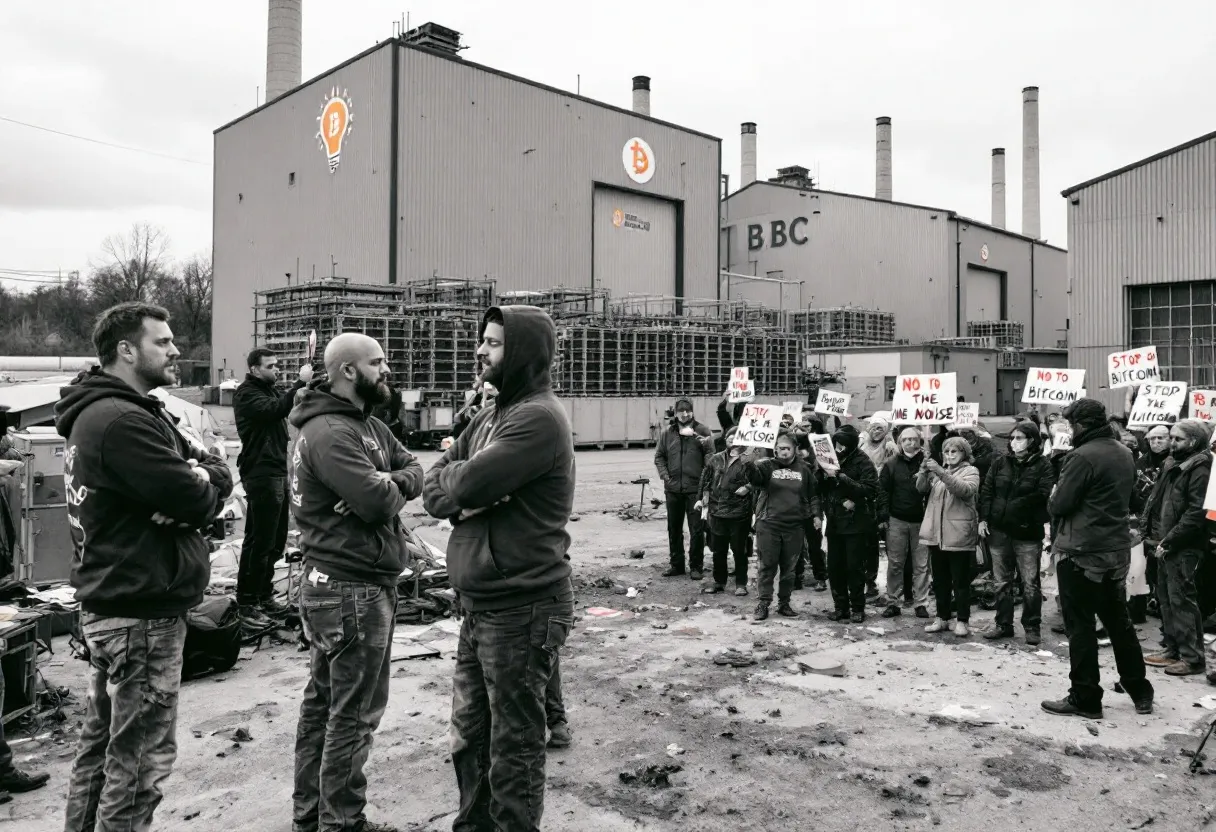New York Bitcoin Miners Clash with Communities Over Power Plants
The rise of Bitcoin mining has become a significant topic of discussion, particularly in regions like New York where the demand for energy is soaring. As cryptocurrency continues to reshape the financial landscape, the implications of its energy consumption are becoming increasingly contentious.
Understanding Bitcoin Mining
Bitcoin mining is the process by which new bitcoins are created and transactions are verified on the blockchain. This process requires substantial computational power and, consequently, a massive amount of electricity. As the price of Bitcoin has sky-rocketed, so has the incentive for miners to set up operations, often in locations with abundant and cheap energy.
New York’s Energy Landscape
New York is endowed with a complex energy infrastructure that includes a mix of renewable and non-renewable sources. The state’s commitment to renewable energy has attracted many Bitcoin miners looking for affordable electricity. However, the growing presence of these operations has sparked significant debate within local communities.
The Clash with Communities
As Bitcoin miners begin to purchase and operate power plants, they often find themselves at odds with local residents and environmental advocates. The primary concerns are centered around:
- Environmental Impact: Many communities are worried about the environmental effects of increased energy consumption, particularly if it comes from fossil fuel sources.
- Resource Allocation: With miners consuming vast amounts of electricity, local residents fear that their needs may be deprioritized in favor of profit-driven mining operations.
- Community Disruption: The rapid influx of miners can lead to disruptions in local economies and lifestyles, as the focus shifts to supporting these new businesses.
Economic Arguments
Proponents of Bitcoin mining argue that it can be economically beneficial for local communities. They contend that:
- Job Creation: The establishment of mining operations can create jobs, not only within the mining facilities but also in ancillary services and industries.
- Increased Revenue: Local governments can benefit from increased tax revenues generated by mining operations, which can be reinvested into community services.
- Technological Advancement: The presence of tech-savvy companies can spur innovation and investment in local infrastructure.
Despite these potential benefits, the concerns raised by local communities cannot be overlooked. The balance between economic gain and environmental sustainability remains a critical point of contention.
Regulatory Responses
In response to the growing tensions between miners and communities, New York has begun implementing regulatory measures. These regulations aim to ensure that mining operations adhere to environmental standards and that local energy needs are met. Some of the proposed measures include:
- Energy Consumption Limits: Setting limits on the amount of energy that can be consumed by mining operations to protect local resources.
- Environmental Impact Assessments: Requiring miners to conduct comprehensive assessments of their operations’ environmental impacts.
- Community Engagement: Mandating that miners engage with local communities to discuss their plans and address concerns.
The Future of Bitcoin Mining in New York
The future of Bitcoin mining in New York remains uncertain. As the demand for cryptocurrency continues to grow, so too does the debate over its sustainability and ethical implications. Local communities are increasingly vocal about their concerns, and the regulatory landscape is evolving in response.
Balancing Act: Finding Common Ground
For Bitcoin mining to coexist harmoniously with local communities, a balanced approach is essential. Here are some potential strategies that could help bridge the gap:
- Investment in Renewable Energy: Miners can prioritize the use of renewable energy sources to mitigate environmental impacts and align with the state’s green initiatives.
- Community Benefit Agreements: Establishing agreements that ensure a portion of mining profits is reinvested into local infrastructure and services.
- Education and Transparency: Providing education about Bitcoin mining and its implications can foster a better understanding and build trust between miners and communities.
Conclusion
As Bitcoin mining continues to expand in New York, the clash between miners and local communities raises important questions about energy consumption, environmental sustainability, and economic development. The challenge lies in finding a balance that respects the needs of all stakeholders involved.
Ultimately, the conversation around Bitcoin mining in New York is not just about cryptocurrency; it is about the future of energy, community, and the environment. How this dialogue evolves will shape the landscape of cryptocurrency mining in the state and beyond. The path forward will require collaboration, innovation, and a commitment to sustainable practices that benefit both miners and the communities they operate in.






